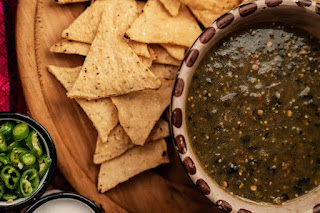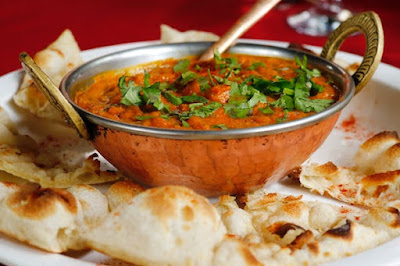Do you need a permit to sell food in Hawaii?
Do you need a permit to sell food in Hawaii?
BE SURE TO SUBSCRIBE TO OUR YOUTUBE CHANNEL OVER 1,000 FREE VIDEOS!
Marketing Food Online participates in various affiliate marketing programs, which means we may get paid commissions on editorially chosen products purchased through our links to retailer sites. Our Blogs are for informational purposes only seek legal advice if needed.
Homemade Foods from Hawaii that are Available for Purchase
People in every state in the United States create food at home, which they then sell in their immediate communities. The homemade food, sometimes known as the "cottage food" sector, is a niche market that is now seeing rapid expansion. People are growing increasingly interested in the origin of their food and the people who prepare it, which is part of a bigger movement toward healthy eating and ethical sourcing practices. Through the implementation of a set of administrative regulations in the year 2017, the State of Hawaii's Department of Health made it simpler for individuals who prepare homemade cuisine to sell that food.
Different kinds of food
In Hawaii, what kinds of foods have a longer shelf life and may I sell there?
There are no bounds to this.
Can I sell baked items in Hawaii that need to be stored in the refrigerator?
There is no prohibition on selling beef in Hawaii.
No. Can I sell goods that have been pickled or have a sour flavor in Hawaii?
Unfortunately, I cannot offer low-acidity canned foods for sale in the state of Hawaii.
I'd like to sell fermented foods, but I'm not sure if that's allowed in Hawaii.
No
Do you need a permit to sell food in Hawaii
Cottage food is food that is cooked and sold from a home kitchen, and many states have regulations regarding this type of cuisine. Cottage food producers in Hawaii are permitted to sell food as long as it is "not potentially dangerous." This almost always indicates that the food has not been kept at a time or temperature that is safe. It is made quite apparent by the administrative guidelines in Hawaii that hand-pounded poi is permitted for commercial sale.
Other foods that do not pose a health risk include bagels, biscuits, breads, brownies, cakes, cookies, donuts, muffins, rolls, scones, sweet breads, tortillas, popcorn, candies, nut butters, oils, syrups, vinegars, cereals, coffee beans, dried fruits and vegetables, herbs, pastas, spices, jams and jellies. Other foods that do not pose a health risk include tortillas, popcorn, bagels, biscuits, bread It is against the law for Hawaii's cottage food producers to sell foods that have been fermented or rendered acidic, foods that have been canned or bottled, dried meats or seafood, low-acid canned foods, or garlic in oil.
Do you need a permit to sell food in Hawaii
Places that provide cottage food in Hawaii: restrictions on sales and venues
Do you need a permit to sell food in Hawaii
Hawaii Annual Sales Cap None
Where in the Hawaiian islands can I sell the food that I have cooked by hand to other people?
There are no bounds to this.
Can I sell the food that I've produced in my own kitchen at places such as supermarkets and restaurants?
No Online Orders
Not getting mail
No
Do you need a permit to sell food in Hawaii
You are only permitted to sell food that you have prepared yourself to people directly in Hawaii at venues such as farmer's markets, roadside booths, and events of a particular nature. Additionally, cottage meals can be delivered or picked up at your home on the island of Hawaii. People are not permitted to buy or sell anything online, at restaurants, or in stores in the state of Hawaii.
How to Get Started in Hawaii and the Burdens It Involves in Regards to Regulation
Before starting any construction, Hawaii is required to have inspections.
Are the laws of a state or the federal government more essential than those of a locality?
There is no requirement for a license, permit, or registration on your part.
There is no need for the recipe to be approved or for any laboratory tests.
To work with food does not require any special training.
Although Hawaii cottage food producers are required to complete a food safety training that has been certified by the state, they are not required to get any further permits, inspections, or business licenses. There are no restrictions placed on the amount of revenue that can be generated by cottage food businesses in Hawaii. People in Hawaii who are interested in making their own food should first determine whether or not there are any regulations before getting started. According to the administrative rules, "when local requirements are stricter than any of the minimum requirements in this chapter, the stricter requirements take precedence." This can be found in situations where local requirements are more stringent than any of the minimum requirements in this chapter.
Labels for foods produced in home kitchens in Hawaii
Cottage food producers in Hawaii are required to package and label their wares before selling them. The common name of the food, a list of the ingredients in decreasing order of weight, the name and contact information of the cottage food producer, and a statement that says "Made in a home kitchen that is not regularly inspected by the Department of Health" are all required to be included on the labels of cottage foods. Poi that has been hand-pounded is required to contain a label that states, "This hand-pounded poi was prepared at a facility that has not been inspected by the Department of Health." Do you need a permit to sell food in Hawaii
Regarding the cottage foods of Hawaii
There are a lot of misconceptions surrounding cottage cuisine. The following is what took place:
The food that comes from a cottage is risk-free. When skeptics discuss the potential for food-borne illness, they often present hypothetical examples of what could go wrong that never actually occur in the real world.
Cottage food is another name for local food. When people in the same region engage in commerce with one another, the money tends to remain in that region.
The food that comes from a cottage is visible. When someone purchases food from a local farmer or other small-scale producer, they are aware of exactly what they are obtaining. They have the option of inquiring about the components, the origin of the food, or the degree of risk associated with consuming it.
Cottage food is responsible for the creation of jobs. The majority of people who prepare meals at home do so so that they can better provide for their families with the money they earn. Others are looking for a supplementary or additional source of income.
The power of women is increased by eating cottage food. The majority of people who create cottage food are women, and many of them live in rural locations where there are limited opportunities to earn money, according to study conducted by the IJ on the topic of cottage food.
People have more options thanks to cottage foods. There are certain stores that do not carry the items that you are looking for. This is especially important to keep in mind if you adhere to a gluten-free, vegan, halal, or kosher diet. The market is made more diverse as a result of the addition of new options provided by cottage food.
Hawaii's homegrown food producers and suppliers
The Food Freedom Initiative of the Institute for Justice provides home bakers and other food entrepreneurs with access to a number of tools that can help them run their businesses more effectively. These items are as follows:
Do you need a permit to sell food in Hawaii
The Model Food Freedom Act developed by the Institute for Justice serves as a roadmap for activism in state capitols across the country.
In the documentary titled "Flour Power: How Cottage Food Entrepreneurs Are Using Their Home Kitchens to Become Their Own Bosses," 775 cottage food producers from 22 different states were interviewed to discuss the significance of their companies.
In this episode of Ready to Roll, we discuss nine takeaways that may be gleaned from the Institute for Justice's victory in Wisconsin over the cottage food industry.
The documentary "The Attack on Food Freedom" examines the impact that restrictions have on people who run businesses, including farmers, chefs, artists, restaurant owners, food truck owners, and others.
Describe your experiences while you were in Hawaii.
Are you losing the ability to prepare your own food because of restrictions imposed by the government in Hawaii? Do you believe that you might have a case for independent counsel?
Do you need a permit to sell food in Hawaii
Defending people's rights all around the country to prepare their own meals at home
People have the right to earn their living in a manner that is not dishonest, and the government should not interfere with this right too much. Since 2013, the Institute for Justice has been advocating on behalf of home cooks and bakers as part of its Food Freedom Initiative. Learn more about I.J.'s crusade for the ability to eat wherever you are in the country...
The information, content, and materials provided on this website are solely intended to serve as a source of general information and should in no way be construed as legal advice. Laws, rules, and procedures are subject to change at any time, and the application of these governing documents can shift depending on the specifics of the case. Consult an attorney if you have concerns regarding the way in which cottage foods are governed in your region. An attorney will be able to guide you through the entire procedure.
.jpeg)


Comments
Post a Comment